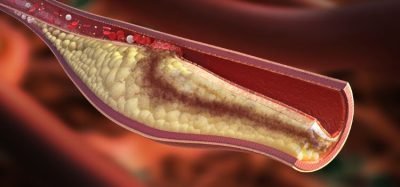Mobocertinib approved as first oral therapy for EGFR Exon20+ NSCLC
Posted: 16 September 2021 | Anna Begley (European Pharmaceutical Review) | No comments yet
FDA approves mobocertinib as the first oral therapy for patients with non-small cell lung cancer with EGFR Exon20 insertion mutations.


Takeda have announced that the US Food and Drug Administration (FDA) has approved Exkivity™ (mobocertinib) for the treatment of adult patients with locally advanced or metastatic non-small cell lung cancer (NSCLC) with epidermal growth factor receptor (EGFR) exon 20 insertion mutations, as detected by an FDA-approved test, whose disease has progressed on or after platinum-based chemotherapy.
The FDA simultaneously approved Thermo Fisher Scientific’s Oncomine Dx Target Test as an next generation sequencing (NGS) companion diagnostic for mobocertinib to identify NSCLC patients with EGFR Exon20 insertions. NGS testing is critical for these patients as it can enable more accurate diagnoses compared to polymerase chain reaction (PCR) testing, which detects less than 50 percent of EGFR Exon20 insertions.
Mobocertinib, which was granted priority review and received Breakthrough Therapy Designation, Fast Track Designation and Orphan Drug Designation from the FDA, is a first-in-class, oral tyrosine kinase inhibitor (TKI) specifically designed to selectively target EGFR Exon20 insertion mutations. This indication is approved under Accelerated Approval based on overall response rate (ORR) and duration of response (DoR). However, the FDA stated that the continued approval for this indication may be contingent upon verification and description of clinical benefit in a confirmatory trial.
The approval is based on results from the platinum-pretreated population in a Phase I/II trial of mobocertinib which consisted of 114 patients with EGFR Exon20 insertion+ NSCLC who received prior platinum-based therapy and were treated at the 160mg dose. Results were presented at the 2021 American Society of Clinical Oncology from the Phase I/II trial and demonstrated a confirmed ORR of 28 percent per independent review committee (IRC) as well as a median DoR of 17.5 months per IRC, a median overall survival (OS) of 24 months and a median progression-free survival (PFS) of 7.3 months per IRC.
The most common adverse reactions were diarrhoea, rash, nausea, stomatitis, vomiting, decreased appetite, paronychia, fatigue, dry skin and musculoskeletal pain. The prescribing information includes a boxed warning for QTc prolongation and Torsades de Pointes, and warnings and precautions for interstitial lung disease/pneumonitis, cardiac toxicity and diarrhoea.
“EGFR Exon20 insertion+ NSCLC is an underserved cancer that we have been unable to target effectively with traditional EGFR TKIs,” commented Pasi Jänne at the Dana Farber Cancer Institute. “The approval of Exkivity (mobocertinib) marks another important step forward that provides physicians and their patients with a new targeted oral therapy specifically designed for this patient population that has shown clinically meaningful and sustained responses.”
Related topics
Anti-Cancer Therapeutics, Big Pharma, Chemotherapy, Clinical Trials, Data Analysis, Drug Safety, Orphan Drugs, Regulation & Legislation, Therapeutics
Related organisations
Dana-Farber Cancer Institute, Takeda, Thermo Fisher Scientific, US Food and Drug Administration (FDA)









